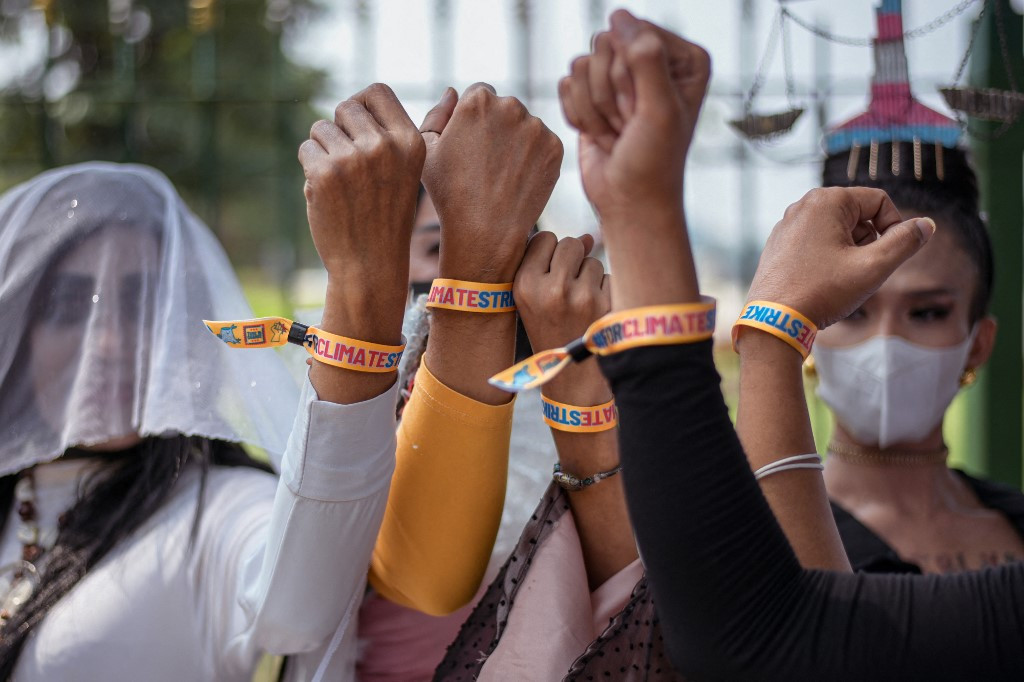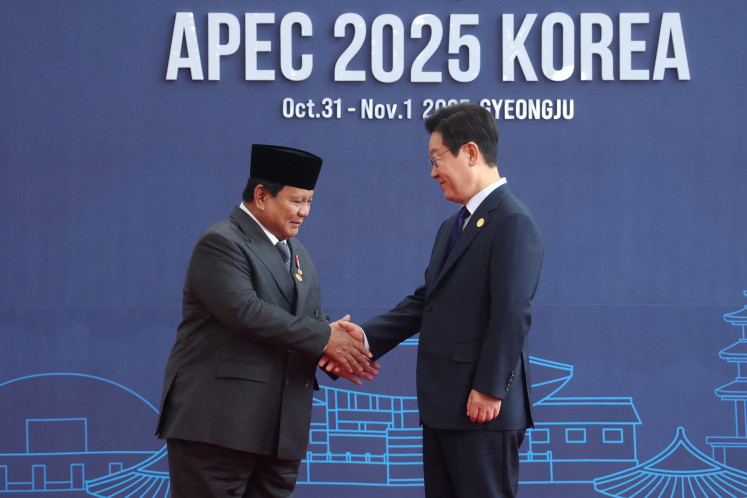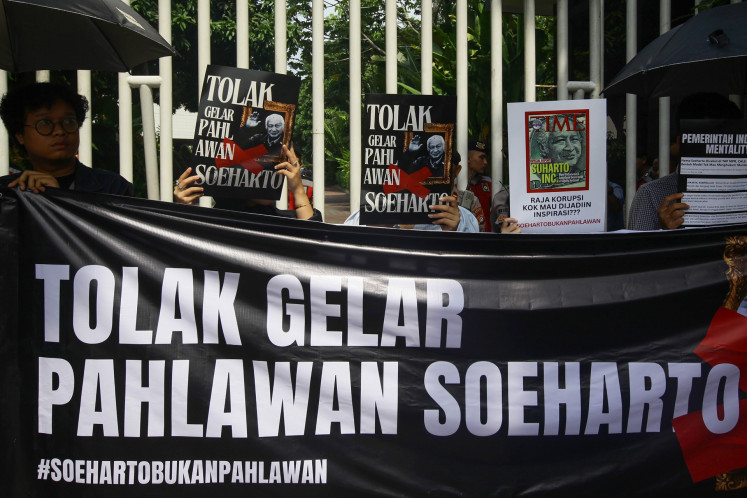Popular Reads
Top Results
Can't find what you're looking for?
View all search resultsPopular Reads
Top Results
Can't find what you're looking for?
View all search resultsListen to youth voters, or perish
Young voters will dominate the polls next year for the first time in Indonesia's election history, which means that aspiring politicians need to reach out and connect with the country's youths in both urban and rural settings to create campaigns that actually speak to them.
Change text size
Gift Premium Articles
to Anyone
The numbers are in: Young voters will dominate the 2024 ballots.
Around 114 million Indonesians eligible to vote next year are under 40. Of that number, more than 68 million are millennials, born between the early 1980s and the mid-1990s. The remaining 46 million are members of so-called Generation Z, born between the mid-1990s to the first decade of this millennium, with some even first-time voters.
The 2024 general election won't be the first in which young Indonesians outnumber voters above 40, but it will be the first time we will see a greater number of Gen Zers, a demographic group widely seen as politically apathetic.
Data from the United States helps to illustrate this perceived apathy: only 27 percent of people aged 18 to 29 cast their ballots in the last US midterm elections in November 2022.
This could spell trouble for political parties, which now have a herculean task in wooing young voters. But it’s not a mission impossible if the parties only know how to achieve this.
Most, if not all, political parties have said they will put young people and first-time voters at the core of their 2024 campaigns, though none have any concrete programs yet. Some parties have even “recruited” politicians who are popular with youth, like Ridwan Kamil of the Golkar Party and Sandiaga Uno of the United Development Party (PPP), to lead their campaign teams.
Others have gone further by rebranding themselves as youth-oriented and inclusive. These include the National Mandate Party (PAN), which has made an effort to shed its Islamic veneer and shift to nationalist rhetoric. And, as expected, the party also has turned to campaigning on social media, its members singing and dancing on Instagram and TikTok.
But these gimmicks may not be enough to sway the opinion of young voters. Born and raised over a cascading series of crises, millennials and Gen Zers have bigger problems to deal with: the climate, for starters.
There is now real worry among the youth that the planet will become inhabitable in a couple more decades. Some politicians may have uttered the word “climate” a lot in their speeches, but young voters want candidates with concrete climate actions. Short of that, Gen Zers will not waste their time heading to the polling stations.
The climate is just one of the many real issues facing young people. Others are no less dire: Will they ever be able to afford buying a house? Will they have access to affordable health care if they get sick? Can they secure good, permanent jobs without the possibility of artificial intelligence or automation replacing them?
Politicians should also keep in mind that millennials and Gen Zers are not just the well-to-do, highly educated, latte-sipping, Instagram-scrolling youth who live in major cities.
There are millions of underprivileged young people outside the cities who are struggling to eke out a living just to pay the bills, supporting both their kids and their aging parents. These young people know what they need, but they lack the tools and power to affect changes.
If politicians would only reach out to these young voters, they could probably get a better sense of their problems and how to help solve them. So go out there and listen, but never judge or lecture them. If there's one thing that young people dislike, it’s being lectured, especially by an “outsider”. And please, no empty promises, either.
It’s still early yet and the candidate registration doesn’t open until October, so aspiring politicians still have the time to prepare a strategy to woo millennial and Gen Z voters.
The good thing about Indonesian democracy is that voter turnout has so far remained staggeringly high. In the 2019 general election, the turnout was 80 percent, one of the highest among democracies in the world.
Political parties certainly don't want to taint this record by letting down young voters. So for all politicians planning to run next year, design your program better; otherwise, those majority young voters won’t even bother to show up at the polls next year on Valentine’s Day.











